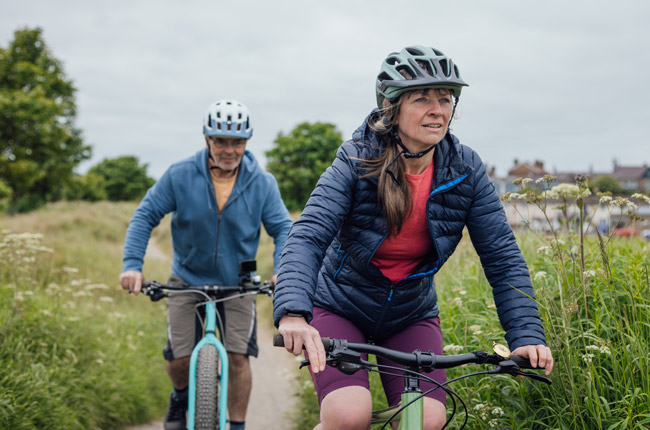Grant title: Replacing sedentary behaviour with standing, physical activity or sleep after treatment for localised renal and colorectal cancer: associations with changes in adiposity, fatigue and quality of life, and underlying biological mechanisms
With this grant we can investigate whether and how replacing sedentary time with standing, physical activity at different intensities, or sleep is related to adiposity, fatigue and quality of life after treatment for kidney and bowel cancer. Findings of this project can guide the development of targeted sedentary behaviour and physical activity interventions, and guidelines to improve patients’ health and wellbeing. – Dr Alina Vrieling
Background
More than half of patients with kidney and bowel cancer have an unhealthy body weight at diagnosis and are either overweight or obese.
After cancer treatment, more than half of patients also suffer from fatigue complaints or other physical, psychological or social problems that reduce their quality of life. More physical activity, less sitting (sedentary behaviour), and sufficient sleep have been related to a healthier body weight, less fatigue complaints and an improved quality of life.
It is unknown which patients with kidney and bowel cancer are sedentary and inactive after treatment. In addition, research is needed on whether replacing time spent sitting with standing, physical activity or sleep can reduce body weight and fatigue complaints, and improve quality of life. Also, insight should be obtained into the underlying biological processes in the human body that explain why less sitting can improve these health outcomes.
Aims and objectives
Our first objective is to investigate the characteristics of patients with kidney and bowel cancer who are sedentary and inactive after treatment.
Secondly, we want to examine whether replacing sedentary time with time spent on standing, physical activity of different intensities, or sleep is associated with changes in measures of an unhealthy body weight, fatigue complaints and quality of life in the first 2 years after treatment.
Lastly, we want to investigate whether these effects are due to reduced inflammatory processes in the body.
How it will be done
We will use data from two Dutch studies: ReLife and EnCoRe. ReLife and EnCoRe are unique cancer survivorship studies worldwide that have data on sedentary behaviour, standing, physical activity and sleep at repeated moments in the first 2 years after cancer treatment. ReLife includes 369 patients with kidney cancer with data collection at 3, 12 and 24 months after treatment. EnCoRe includes 497 patients with bowel cancer with data collection at 6 weeks and 6, 12 and 24 months after treatment.
At all timepoints, time spent on sedentary behaviour, standing, physical activity of different intensities, and sleep was assessed with accelerometers. Also, data on measures of an unhealthy body weight and questionnaire data on fatigue and quality of life, sociodemographic factors, comorbidity and lifestyle-related factors were collected. Clinical data were retrieved from medical records. Blood samples were collected to measure specific markers of so-called inflammatory processes. These markers will be used to investigate underlying biological mechanisms. Statistical analysis techniques will be applied to answer our research questions.
Potential impact
Results of this project will provide insight in specific characteristics of patients with kidney and bowel cancer who are sedentary and inactive after treatment.
Further, results will show how replacing sedentary time with standing, physical activity at different intensities, or sleep could reduce overweight and fatigue and improve quality of life after treatment.
Our findings can guide the development of targeted sedentary behaviour and physical activity interventions and guidelines to improve patients’ health and wellbeing.



